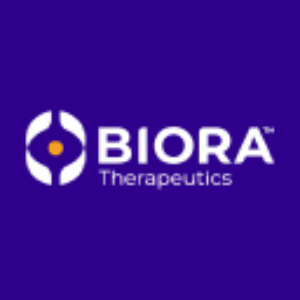Biora Therapeutics Shares Data from Device Performance Study in Ulcerative Colitis Patients
Rhea-AI Summary
Biora Therapeutics presented positive outcomes from its PM-602 study at the ACG 2022 Annual Meeting, showcasing its Drug Delivery System (DDS) for ulcerative colitis patients. The device effectively localized colon entry and released a solution, confirming its potential in enhancing treatment efficacy. Conducted on seven patients, the study indicated the device's ability to deliver therapeutics directly to disease sites, which could improve patient quality of life. An IND application for further clinical studies is expected in Q1 2023, aiming to utilize a tofacitinib formulation.
Positive
- Successful localization and delivery of therapeutics in ulcerative colitis patients, enhancing treatment potential.
- The study demonstrated the device's ability to operate effectively regardless of individual patient conditions.
- Plans to submit an IND application for a PGN-600 clinical study in Q1 2023, indicating progress in drug-device combination development.
Negative
- None.
News Market Reaction 1 Alert
On the day this news was published, BIOR gained 6.03%, reflecting a notable positive market reaction.
Data tracked by StockTitan Argus on the day of publication.
Data Presented at the ACG Annual Meeting Demonstrates Successful Detection of Colon Entry and Topical Coverage Throughout Portion of Colon Implicated in Patients with Active Ulcerative Colitis
SAN DIEGO, Oct. 25, 2022 (GLOBE NEWSWIRE) -- Biora Therapeutics, Inc. (Nasdaq: BIOR), the biotech company that is reimagining therapeutic delivery, today presented detailed results from its PM-602 study titled “A scintigraphic study to evaluate the localization and delivery function of a Drug Delivery System (DDS) device in patients with active ulcerative colitis (UC) in fasted state” during the American College of Gastroenterology (ACG) 2022 Annual Scientific Meeting in Charlotte, NC, October 21–26, 2022.
“In the PM-602 study, Biora’s device accurately localized colon entry and successfully released and dispersed a solution in the colon of active UC patients as shown by gamma scintigraphy,” said Walter Doll, PhD, RPh, Principal Investigator and President at Scintipharma, Inc. “The ability of the device to deliver therapeutics directly to the disease location has the potential to significantly advance treatment of UC, thus offering hope of a more normal lifestyle for these patients,” continued Dr. Doll.
“Ulcerative colitis is difficult to effectively manage with current therapeutics, and there is a significant need for new approaches. Research suggests a primary limitation may be the inability to achieve sufficient drug levels at the site of disease in the colon,” stated Dr. Bruce Sands, who is the Dr. Burrill B. Crohn Professor of Medicine (Gastroenterology) at the Icahn School of Medicine at Mount Sinai and Chief of the Dr. Henry D. Janowitz Division of Gastroenterology at Mount Sinai Health System. Dr. Sands also serves as chair of the Biora Therapeutics Clinical Advisory Board and is a paid consultant. “These results demonstrate that Biora’s platform has the potential to transform management of ulcerative colitis by improving efficacy through increased drug concentration in the colon, while potentially minimizing the harmful side effects associated with systemic drug delivery,” continued Dr. Sands.
The study demonstrated that the DDS device was well tolerated, and that the device functioned as intended in active ulcerative colitis (UC) patients. In all seven patients, regardless of variable GI transit time, level of inflammation, or presence of blood in the stool, the device accurately identified colon entry, triggered release, and delivered a liquid payload to the colon. The liquid payload spread from the site of release throughout the remainder of the colon, completely covering the colon over time.
Seven patients with a Mayo score of two or greater, indicating moderate to severe ulcerative colitis, participated in the PM-602 study. During the study, Biora’s device was ingested orally in a single dose. After identification of colon entry, the device released a saline solution payload that included radioisotopes. Serial gamma-scintigraphy images were used to independently determine device localization and payload delivery to the lower gastrointestinal tract. No investigational drug was administered during the study.
With the completion of three successful device function studies in humans, the company expects to submit an IND application during the first quarter of 2023 to begin a clinical study evaluating its PGN-600 drug-device combination, which uses a liquid formulation of tofacitinib.
The poster can be viewed by visiting bioratherapeutics.com/publications.
About Biora Therapeutics’ Targeted Therapeutics Platform
Biora Therapeutics’ targeted therapeutics platform utilizes a novel approach that could improve IBD patient outcomes by enabling delivery of therapeutics directly to the site of disease. The objective is to increase therapeutic levels in tissue while reducing systemic uptake. For the 1.8 million patients in the United States who suffer from inflammatory bowel disease (IBD), existing therapeutics offer less than ideal efficacy, likely because of the challenges with safely achieving sufficient drug levels in the affected tissues. Recent data have shown that targeted delivery of therapeutics has the potential to improve patient outcomes in IBD.
Biora’s Drug Delivery System (DDS) is an ingestible capsule designed for targeted delivery of therapeutics to improve treatment of IBD. It is approximately the size of a fish oil capsule and delivers a payload of up to 500µl liquid or solid formulation. Once swallowed, the capsule is designed to autonomously identify specific locations in the GI tract and release a therapeutic dose.
Biora is developing the PGN-600 program, which consists of a liquid formulation of tofacitinib delivered to the colon via the DDS capsule, for the treatment of ulcerative colitis. Studies in healthy volunteers have demonstrated accurate localization and delivery in a fasted state and also demonstrated the device’s ability to function in both fasted and fed states, making it potentially the first ingestible therapeutic delivery device that does not require fasting or other food restriction for use. A device function study in participants with active ulcerative colitis (UC) patients also demonstrated successful device performance in active UC patients. During the first quarter of 2023, the company expects to submit an Investigational New Drug (IND) application to begin a Phase 1 study with its PGN-600 drug-device combination to evaluate drug concentration in tissue and reduction of drug levels in plasma.
About Biora Therapeutics
Biora Therapeutics is the biotech company that is reimagining therapeutic delivery. By creating innovative smart pills designed for targeted drug delivery to the GI tract, and systemic, needle-free delivery of biotherapeutics, the company is developing therapies to improve patients’ lives. Biora envisions a world where patients have access to needle-free drug delivery and better therapeutic outcomes.
For more information, visit bioratherapeutics.com or follow the company on LinkedIn or Twitter.
Safe Harbor Statement or Forward-Looking Statements
This press release contains “forward-looking statements” within the meaning of the “safe harbor” provisions of the Private Securities Litigation Reform Act of 1995, which statements are subject to substantial risks and uncertainties and are based on estimates and assumptions. All statements, other than statements of historical facts included in this press release, including statements concerning the progress and future expectations and goals of our research and development efforts, are forward-looking statements. In some cases, you can identify forward-looking statements by terms such as “may,” “might,” “will,” “objective,” “intend,” “should,” “could,” “can,” “would,” “expect,” “believe,” “design,” “estimate,” “predict,” “potential,” “plan” or the negative of these terms, and similar expressions intended to identify forward-looking statements. These statements reflect our plans, estimates, and expectations, as of the date of this press release. These statements involve known and unknown risks, uncertainties and other factors that could cause our actual results to differ materially from the forward-looking statements expressed or implied in this press release. Such risks, uncertainties, and other factors include, among others, our ability to innovate in the field of precision medicine, risks related to the supply and manufacturing of and complexity of components in our devices, our ability to obtain and maintain regulatory approval or clearance of our products on expected timelines or at all, our plans to research, develop, and commercialize new products, the unpredictable relationship between preclinical study results and clinical study results, our expectations regarding future revenue generating opportunities with current or future pharmaceutical collaborators, our ability to raise sufficient capital to achieve our business objectives, the ongoing COVID-19 pandemic, competition from other companies, and those risks described in “Risk Factors” and “Management’s Discussion and Analysis of Financial Condition and Results of Operations” in our Annual Report on Form 10-K for the year ended December 31, 2021 filed with the SEC and other subsequent documents, including Quarterly Reports, that we file with the SEC.
Biora Therapeutics expressly disclaims any obligation to update any forward-looking statements whether as a result of new information, future events or otherwise, except as required by law.
Investor Contact
Chuck Padala
Managing Director, LifeSci Advisors
IR@bioratherapeutics.com
(646) 627-8390
Media Contact
media@bioratherapeutics.com








